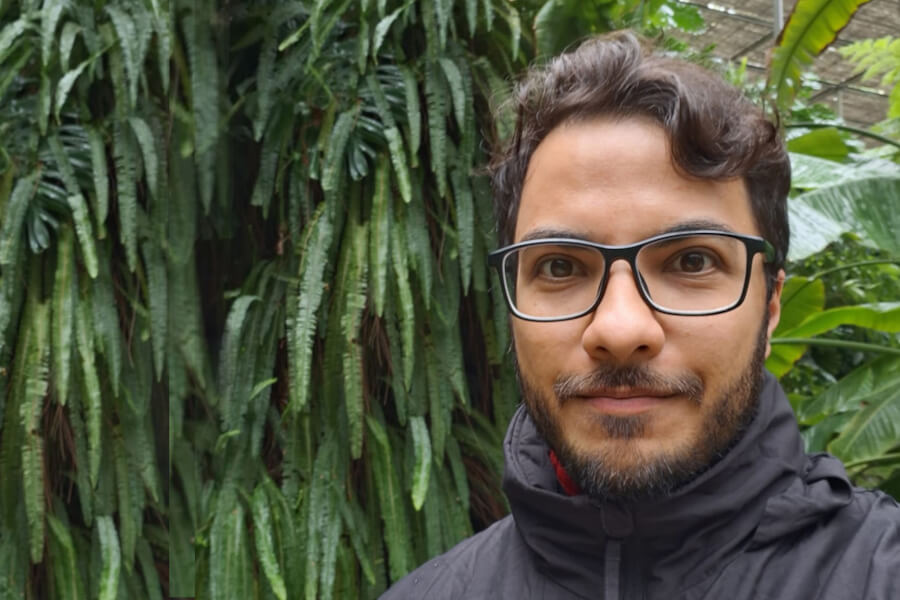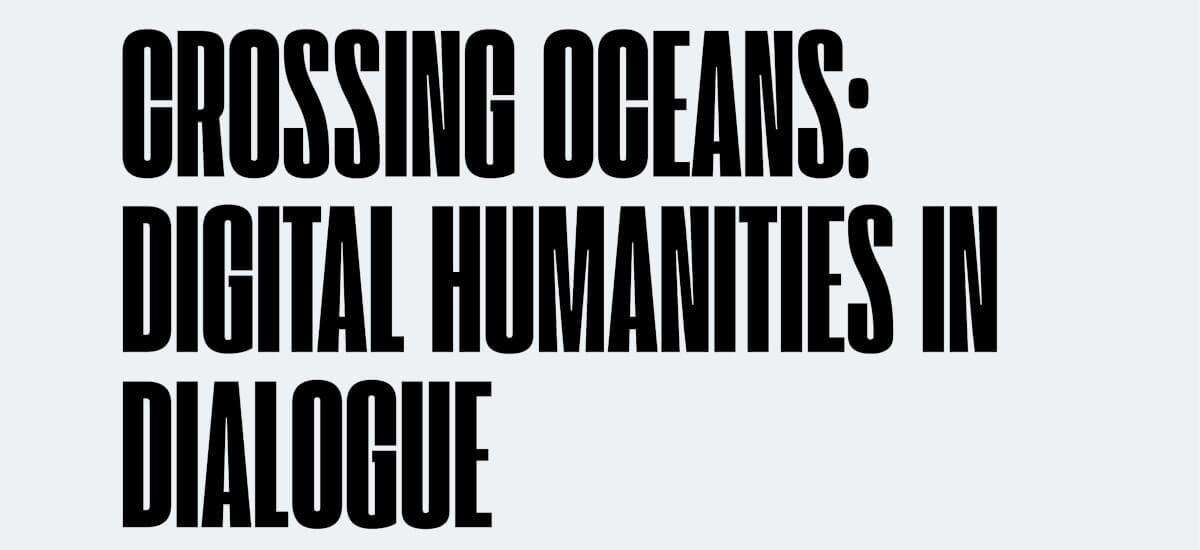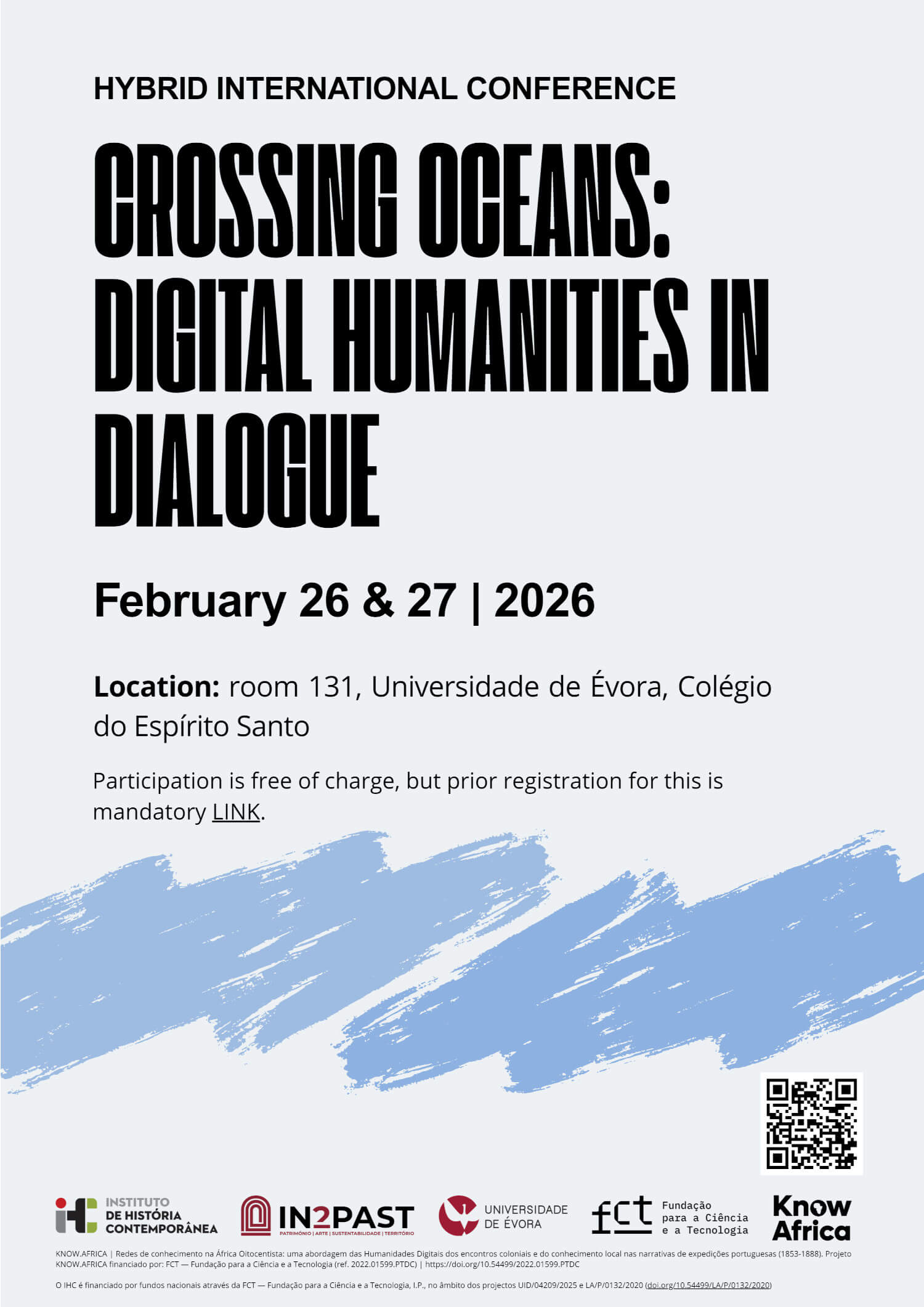Anderson Antunes

History of Science, Technology, and the Environment
Contact:
anderson.antunes@uevora.pt
Biography
PhD in History of Science and Health from Casa de Oswaldo Cruz/Fiocruz, with a period in the History Department of King’s College London (United Kingdom), on a CAPES/PDSE scholarship. He has a Master’s degree in the History of Science and Health from the Casa de Oswaldo Cruz/Fiocruz, specialising in the Dissemination of Science, Technology and Health at the Museum of Life, Casa de Oswaldo Cruz/Fiocruz, and is a Historian and Museologist from the Federal University of the State of Rio de Janeiro (Unirio). He researches in the areas of History of Science, Science Communication, Digital Humanities, and Museology. He works mainly analysing the circulation of people, artefacts and knowledge in colonial spaces in the 19th century, investigating the relationships between travellers and local agents in the field and the contributions of these agents to the construction of scientific knowledge and the formation of Natural History collections, understanding the results of scientific journeys as dialogical co-productions between different communities.
Research fields
- History of science
- Science communication
- Digital humanities
- Museology
Selected publications
- Antunes, Anderson Pereira. A rede dos invisíveis: o papel da sociabilidade nas expedições científicas do Oitocentos. São Luís: Editora UEMA, 2022.
- Pereira Antunes, Anderson. “Social Network Analysis in the History of Sciences. Visualising Sociability in Scientific Expeditions with Gephi .” Publicaciones de la Asociación Argentina de Humanidades Digitales 2 (2021): 13-30. [link] 🔓
- Antunes, Anderson Pereira. “Saberes locais e a formação de coleções de história natural nas expedições científicas do oitocentos.” Anais do Museu Histórico Nacional 55 (2021): 1-18. [link] 🔓
- Antunes, Anderson Pereira, Luisa Massarani & Ildeu de Castro Moreira. “‘Botánicos Y zoólogos prácticos’: Aportes De Los Nativos amazónicos a Las Expediciones De Historia Natural (1846-1865).” Historia Crítica 1 (2019): 137-60. [link] 🔓
Main projects
- Researcher in the project “KNOW-AFRICA — Knowledge networks in 19th century Africa: A Digital Humanities approach to colonial encounters and local knowledge in the narratives of Portuguese expeditions (1853-1888)” — coordinated by Sara Albuquerque (IHC — University of Évora) and and funded by the Foundation for Science and Technology (2022.01599.PTDC). 2024- [link]
Search
Events
fevereiro, 2026
Tipologia do Evento:
Todos
Todos
Colloquium
Conference
Conference
Congress
Course
Cycle
Debate
Exhibition
Launch
Lecture
Meeting
Movie session
Open calls
Opening
Other
Presentation
Round table
Seminar
Showcase
Symposium
Tour
Workshop
- Event Name
seg
ter
qua
qui
sex
sab
dom
-
-
-
-
-
-
1
2
3
4
5
6
7
8
9
10
11
12
13
14
15
16
17
18
19
20
21
22
23
24
25
26
27
28

Detalhes do Evento
This conference aims to open the space for dialogue on how Digital Humanities can boost plural approaches to history, memory, heritage, and creativity. Crossing Oceans: Digital Humanities in
Ver mais
Detalhes do Evento
This conference aims to open the space for dialogue on how Digital Humanities can boost plural approaches to history, memory, heritage, and creativity.
Crossing Oceans: Digital Humanities in Dialogue
We are pleased to announce the international conference Crossing Oceans: Digital Humanities in Dialogue, bringing together researchers, practitioners, and digital humanists from all around the globe. This event seeks to create a space of truly transoceanic dialogue to discuss the present and future of Digital Humanities.
The conference invites participants to rethink methodologies for work in the Humanities at a time when digital transformations are reshaping how we investigate, interpret, and share knowledge. The digitization of archival materials, alongside the proliferation of born-digital records, has multiplied the sources available for historical, literary, and cultural analysis. Today, researchers have at their disposal a wide range of digital tools and software that allow them to organise, interpret, manipulate, share, and store data in increasingly diverse ways, opening new pathways for both collaborative and innovative research. At the same time, the emergence of artificial intelligence challenges us to critically assess both the possibilities and the risks of automated tools in the construction of knowledge.
Programme highlights
26 February
08:30 GMT – Registration and welcome coffee
08:45 GMT – Opening
09:00–10:30 GMT – Digital archives and collections
10:30–12:00 GMT – Digital heritage
13:00–15:00 GMT – Round-table
15:00–15:30 GMT – Coffee break
15:30–17:00 GMT – Digital approaches to colonialism
17:00–18:30 GMT – Databases and archives
27 February
08:30 GMT – Welcome coffee
09:00–10:30 GMT – Artificial Intelligence
10:30–12:00 GMT – Databases
113:00–15:00 GMT – Round-table
15:00–15:30 – Coffee break
15:30–17:00 GMT – Infrastructures and methods
17:00–18:30 GMT – Artificial Intelligence
Call for papers
By crossing oceans and perspectives, this conference aims to open the space for dialogue on how Digital Humanities can boost plural approaches to history, memory, heritage, and creativity, while also confronting questions of accessibility, ethics, and epistemic justice, as when we use these tools to give voice to new agents previously made invisible by traditional historiography, for instance.
On this conference, we welcome contributions on topics including but not limited to:
- Methodological innovations in Digital Humanities research.
- The impact of AI on the Humanities and critical approaches to its use.
- Digitization projects and the challenges of working with born-digital materials.
- Digital strategies for reaching non-academic audiences.
- Tools and projects that facilitate collaborative and transnational projects.
Submission period: 20 October – 5 December 2025 26 January 2026 [new deadline]
Participation: Free of charge, registration required
Language: English (presentations in other languages may be considered)
🔗 Registration and proposal submission
Organisation
Organising Committee
Anderson Antunes (University of Évora / IHC / IN2PAST)
Sara Albuquerque (University of Évora / IHC / IN2PAST)
Scientific Committee
Ana Margarida Dias da Silva (University of Coimbra / CHSC / DCV-UC)
Anderson Antunes (University of Évora / IHC / IN2PAST)
Daniel Alves (IHC — NOVA FCSH / IN2PAST)
Santiago Perez (CEComp — FLUL)
Sara Albuquerque (University of Évora / IHC / IN2PAST)
Silvia Valencich Frota (CEComp — FLUL)
Executive Committee
Anderson Antunes (University of Évora / IHC / IN2PAST)
Diana Barbosa (IHC — NOVA FCSH / IN2PAST)
Sara Albuquerque (University of Évora / IHC / IN2PAST)
Paula Gentil Santos (University of Évora)
This conference is inspired by the KNOW.AFRICA project (https://doi.org/10.54499/2022.01599.PTDC), which investigates nineteenth-century Portuguese scientific expeditions in Angola by highlighting the invisible contributions of local agents who made travelling and collecting possible. In this project, we analyse how cooks, guides, interpreters, porters, local rulers, and others, collaborated with the construction of knowledge and the formation of scientific collections. Through the use of Digital Humanities methods and tools – such as GIS mapping, network analysis and visualisation, databases, and interactive digital timelines – KNOW.AFRICA aims to explore how digital tools can assist in the construction and dissemination of historical knowledge. By combining archival research with digital tools, the project not only advances academic debates on colonial science but also develops outputs aimed at wider publics, including digital exhibitions, podcasts, and interactive maps and timelines. In this way, KNOW.AFRICA aims to use the Digital Humanities as a way to bridge research and dissemination, turning historical inquiry into a shared, multidisciplinary and collaborative process.
Tempo
26 (Quinta-feira) 8:30 am - 27 (Sexta-feira) 6:30 pm
Organizador
Institute of Contemporary History - University of Évoracehfc@uevora.pt Largo dos Colegiais, 2 — 7000-812 Évora
News
VINCULUM — An end and a new beginning
Feb 24, 2026
FCSH hosted the closing session of the VINCULUM project
In March, Lisbon becomes the Capital of International Intrigue
Feb 21, 2026
Between 2 and 31 March, at the Portuguese Cinematheque
Anita Buhin is on a research mission in Italy
Feb 20, 2026
She is now a Visiting Researcher at CAST, University of Bologna





